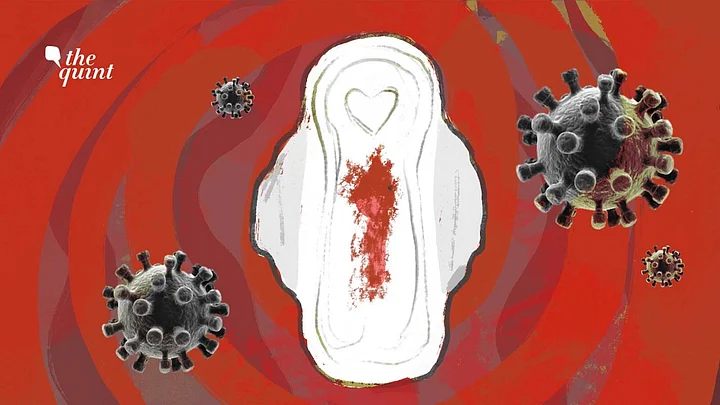In the pandemic years, did you notice your menstrual cycle go haywire sometimes? Turns out, you weren't imagining it.
In previous stories, FIT has spoken to people who opened up about how the pandmeic impacted their periods, and pointed to the lack of research on the subject.
Now, however, a new study, published in the journal Obstetrics & Gynaecology, reinforces that there could be a real connection there between the pandemic and your periods.
The study conducted by the University of Pittsburgh School of Medicine suggest that high levels of stress during the COVID-19 pandemic may have impacted menstrual cycles.
Here's all you need to know about the study.
How Was the Study Conducted? The study was conducted in May 2021 and 354 cis women (aged 18 - 45) self-reported data about changes in their menstrual cycles between March 2020 and May 2021. All these women also reported elevated levels of stress.
Why Were Women Experiencing Stress? The study highlighted that the increased levels of stress were due to the 'disproportionate share of child care and housework,' but also because a lot of women had to leave their jobs during the pandemic.
How did their periods change? More than 50 percent of women said that their menstrual cycle changed in four regards:
Cycle length
Period duration
Menstrual flow
Untimely spotting
For some women, their periods either came early or were delayed. For others, there was a heavier flow. Some reported that the number of days in the cycle increased, while for some, it decreased. Some women also reported “increased spotting between cycles.”
12 percent of the study participants said that the stress impacted all four of these things.
Who Is at the Most Risk? Women who are younger or have a history of mental health issues were found to be more prone to changes in their menstrual cycles because of higher stress.
How Are Stress and Menstruation Related? The study found that Cortisol (stress hormone) affects the estrogen and progesterone (reproductive hormones) production - these are responsible for regulating the menstrual cycle.
Is This a Cause for Concern? Yes. Stress can have the following impacts on one's health, in addition to affecting their menstrual cycles:
Affect fertility
Weight loss
Insomnia
Hormonal changes
Infections
Early menopause
Autoimmune or chronic diseases
Heart problems
Are there any drawbacks to the study? Yes, the study authors make it clear that the study only involved cis-women, and that no data was collected from non-binary people, or trans women.
What Are Experts Saying? Speaking to FIT for a previous story, Dr Suchitra Dalvie of Asia Safe Abortion Partnership (ASAP), had also explained, "When you are seriously ill or are stressed, for example, if you have an exam or a job interview coming up, or you have moved towns, your body sees it as a stressful situation."
"Under these circumstances, it is not safe for you to get pregnant. Usually, your body shuts down for a cycle or two, or you experience irregularity during this period. Women who have chronic illness, like tuberculosis, also have irregular periods."Dr Suchitra Dalvie of Asia Safe Abortion Partnership (ASAP)
Assistant Professor at the University of Pittsburgh School of Medicine Martina Anto-Ocrah, who led the study, told The Washington Post, “Until we get some data to show that what is in women’s heads is actually the truth, the medical society kind of turns us away and doesn’t believe it.”
(Written with inputs from Washington Post)

